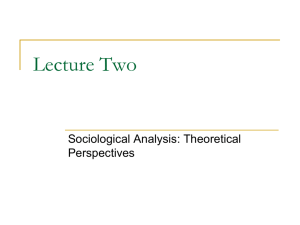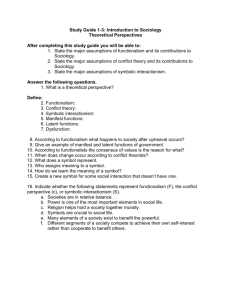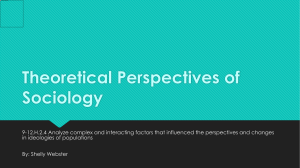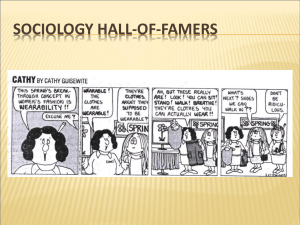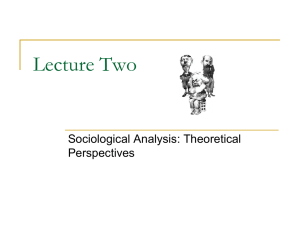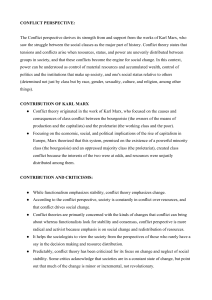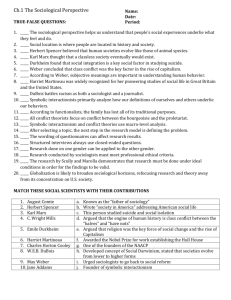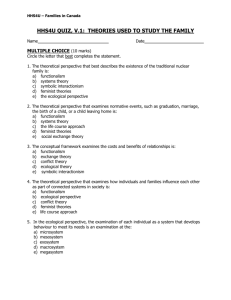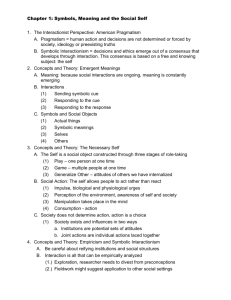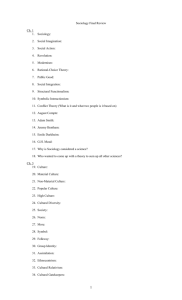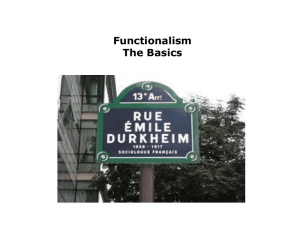Scientific Revolution
advertisement
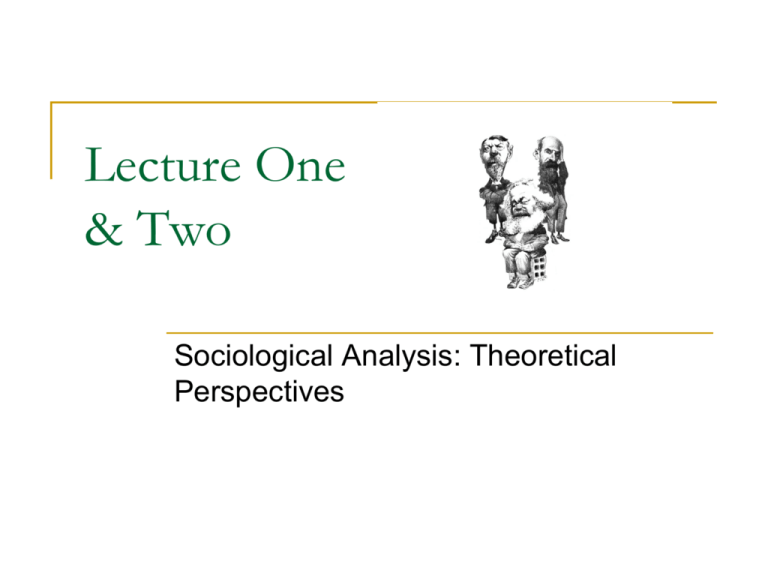
Lecture One & Two Sociological Analysis: Theoretical Perspectives The Origins of Sociology The sociological discipline emerged at the end of the 19th C at the intersection of 3 major revolutions Scientific Revolution: idea that we can objectively study society Democratic Revolution: idea that ‘the people’ are responsible for making decisions that shape and change society (not God) Industrial Revolution: created significant and lasting changes in society and people’s daily lives Karl Marx (1818-1883) Association of Marx with Communism obscure his contribution to sociology and his ideas. Communism is a later application of his ideas. Marx focused on the economic relations of society as the source and solution of social conflict He believed that social scientist’s task is to analyze and explain conflict, which drives social change Emile Durkheim (1858-1918) While Marx was concerned with the source of conflict in society, Durkheim wondered what tied people to each other and society Focused on division of labor in society Durkheim believed that the social scientist’s task is to analyze and explain solidarity and the mechanisms through which it is achieved Max Weber (1864-1920) Weber believed that the structure of society could be explained by observing the behavior of people in society that supports that structure and the ideas/values that motivate those actions. Focused on how society became rationally organized Weber believed that social scientist’s task is to explain the course and consequences of social action He was concerned with social actions and the meaning people attach to their behavior. Why are the DWEM’s still relevant? Early sociologists studied the rapid and far-reaching changes that brought by Industrialization; these changes are the foundation of the society we live in today Globalization – cultural, social, and economic interdependence Post-Industrial society – economy based on services and education Rationalization – dominance of value-rational thought/action Division of labor and specialization – jobs, education, geography Studying the Social World The major theoretical approaches are important to compare and contrast because they make different assumptions about the social world and have different answers Sociologists ground their research and analysis in a theoretical approach to: Ask the right questions Guides research methods Organize empirical observations and conclusions Some sociologists use ONLY one approach all the time and some use the perspective that best addresses the question at hand. Functionalism Functionalist approach believes that society works toward equilibrium and stability According to functionalism society is a system of interrelated parts – economy, family, religion, mass media, etc. Each of society’s parts function to maintain the stability of the larger system Main questions asked by functionalists: How do the institutions (parts) of society contribute to social stability and/or instability? Marxist/Conflict Theory In contrast to functionalists who focus on order and stability, the conflict approach focuses on conflict and social change. According to the conflict approach, society is based on conflict between social groups Patterns of inequality create social stability in some circumstances and social change in others Social conditions are the expression of the ongoing power struggle between groups The main question asked by the conflict approach is: Who benefits from a particular pattern or social arrangement and at whose expense? Symbolic Interactionism In contrast to functionalism and conflict theory, which assumes that people’s group membership determine their behavior (race, class, etc.), symbolic interactionism focuses on how people’s ideas/values shape their behavior Symbolic Interactionism assumes that social life is possible because people attach meaning to it. Main question asked by symbolic interactionsim is how do individuals communicate and interact to make social life meaningful? Putting them into practice… How do we explain the gender wage gap? Is education the great equalizer? High School Diploma: BA/BS Degree: men = $32K women = $22K men = $51K women = $36K PhD: men = $77K women $56K How do we explain the wage gap? Use the theory assigned to your group to explain the gender wage gap. Group: 1 and 4= Structural Functionalism 2 and 5= Conflict Theory 3 and 6 = Symbolic Interactionism
